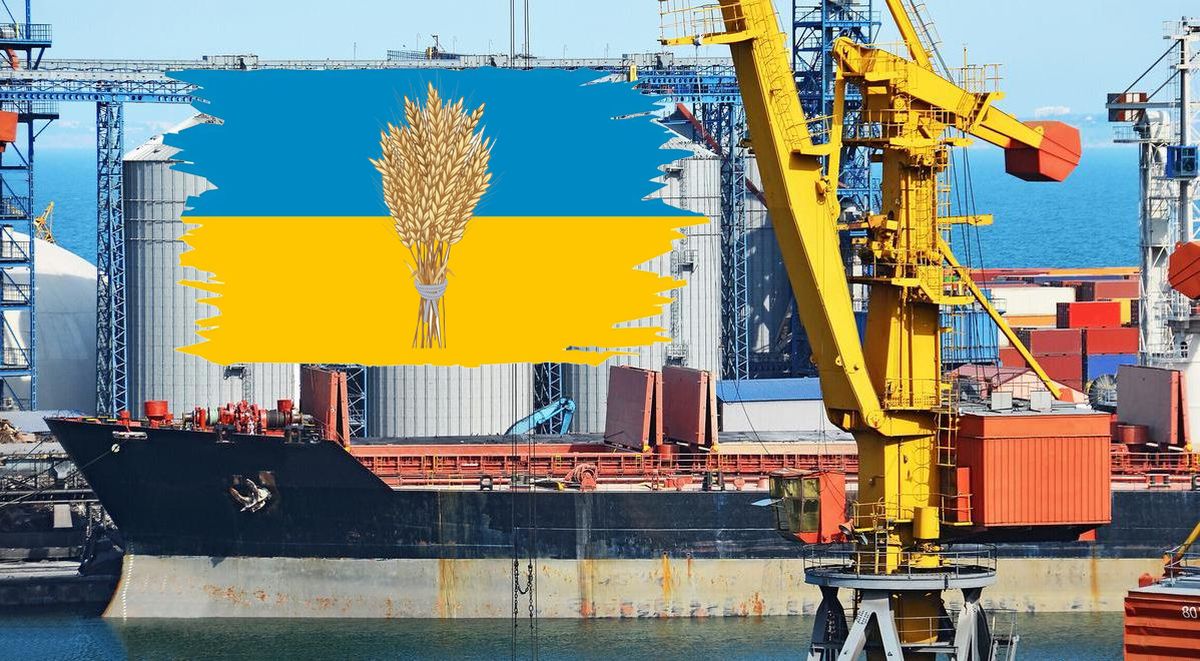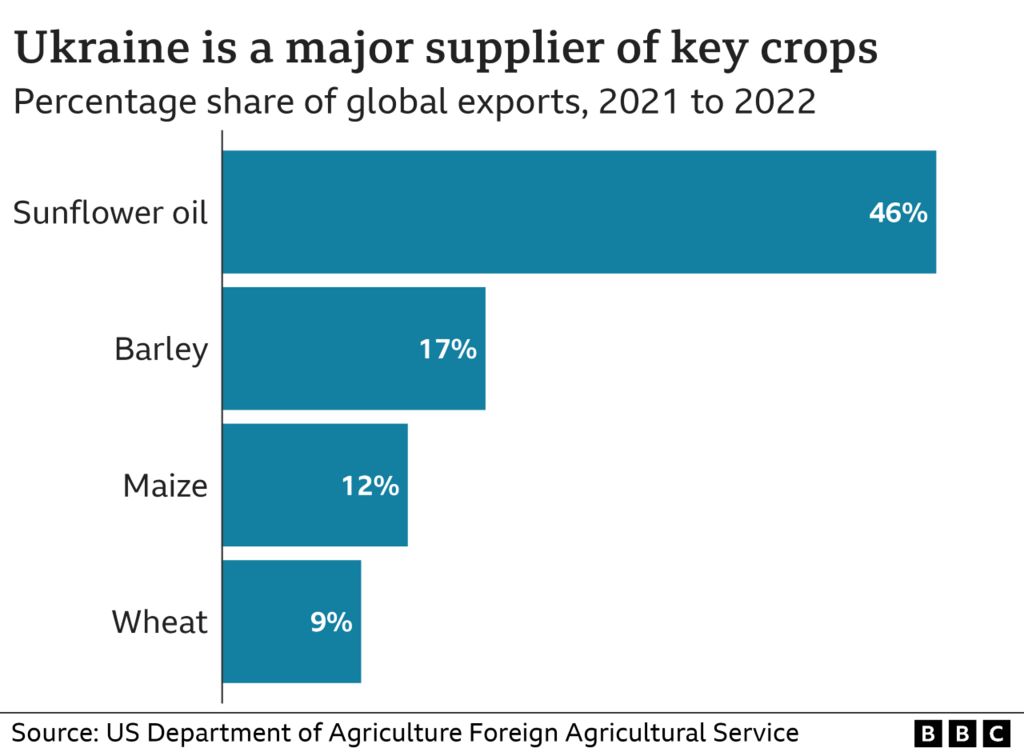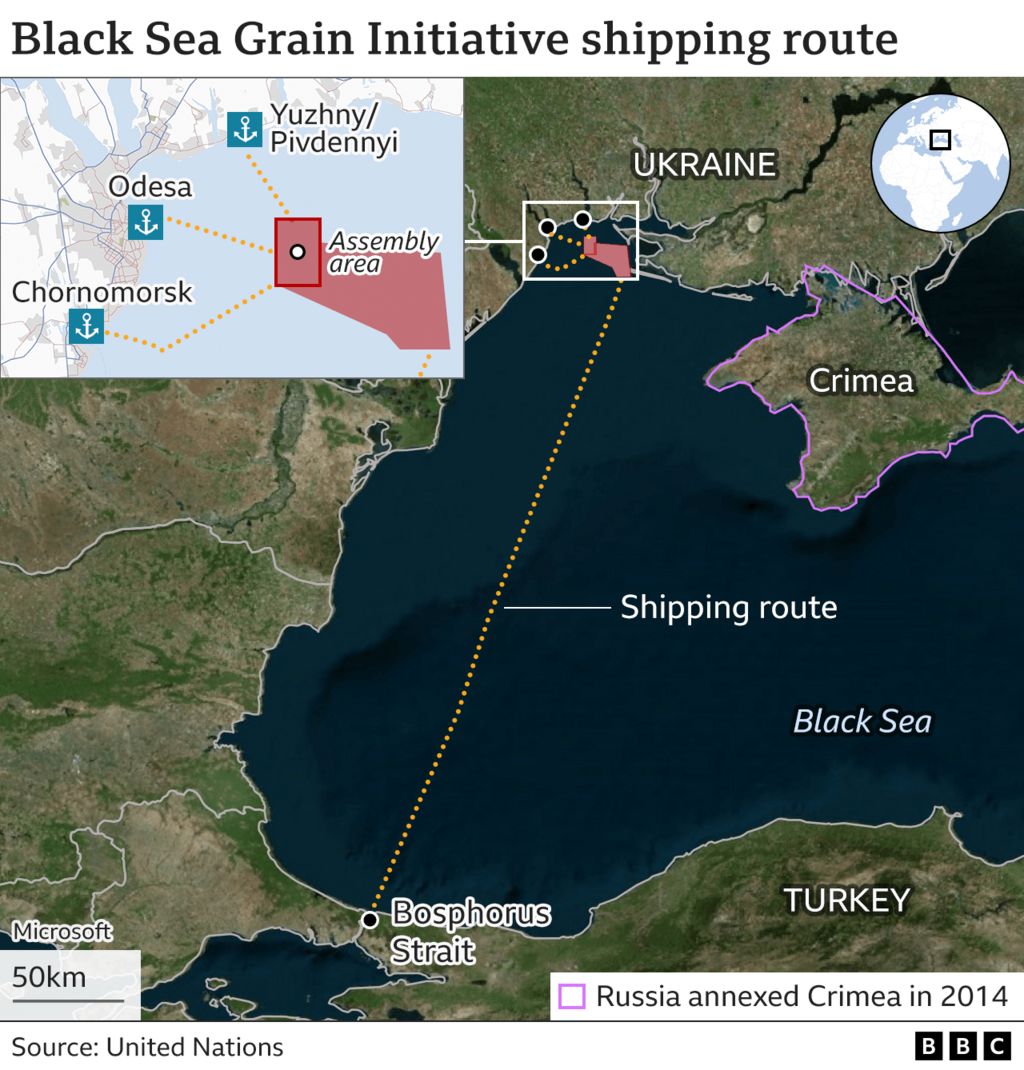What is the Ukraine grain deal and why is Russia threatening to pull out?

Over the past year, the deal has enabled Ukraine to export over 32 million tonnes of grain and other foods safely across the Black Sea despite the war.
Ukraine is one of the world’s largest exporters of sunflower, maize, wheat and barley.
When Russia invaded in February 2022, its naval vessels blockaded Ukraine’s ports, trapping some 20 million tonnes of grain. That sent global food prices soaring.
It also threatened food supplies to a number of Middle Eastern and African countries which rely heavily on Ukrainian grain.
The UN warned that 44 million people in 38 countries were facing “emergency levels of hunger”.
The deal is meant to be extended for 120 days at a time, but in March and May 2023, Russia agreed to extensions of only 60 days.
Now it is threatening to pull out altogether.
It wants Western sanctions to be relaxed to enable its own producers to export more food and fertiliser.
There are no specific sanctions against Russian agricultural exports, but Moscow argues that other sanctions deter international banks, shipping firms and insurers from doing business with its producers.
Russia temporarily withdrew from the deal in November 2022, accusing Ukraine of launching a “massive” drone attack on its fleet in Crimea from vessels in the safe shipping corridor in the Black Sea.
It lets cargo ships pass safely through the Black Sea, along a corridor 310 nautical miles long and three nautical miles wide, to and from the ports of Odesa, Chornomorsk and Yuzhny/Pivdennyi.
The UN’s Joint Coordination Centre, which runs the scheme, says that since it began, 32 million tonnes of foodstuffs have been shipped from Ukraine, as well as fertiliser.
In June 2023, Ukraine exported less than 1.4 million tonnes of foodstuffs. Nine months previously, it had been exporting about four million tonnes a month.
This is partly because Ukrainian farmers are producing less, due to the ongoing fighting across large parts of the country.
However, Ukraine’s government says Russia has also been delaying cargo ships heading to its ports to load with food products, by stopping them to inspect for weapons.
“Ukraine has accused it of being overly picky with the inspections,” says Bridget Diakun, from the shipping journal Lloyds List. “There is usually a queue of about 100 ships in the entrance to the Black Sea.”
The UN says that of all the food products Ukraine has exported under the grain deal:
- 47% have gone to “high-income countries” including Spain, Italy and the Netherlands
- 26% have gone to “upper-middle income countries” such as Turkey and China
- 27% have gone to “low and lower-middle income countries” such as Egypt, Kenya and Sudan
Russia’s President Vladimir Putin has criticised Ukraine for not exporting more to developing countries.
But the UN says the grain deal has benefited people throughout the world because it has brought more food products onto the global market and therefore reduced global prices.
The UN says that under the grain deal, it has shipped 625,000 tonnes from Ukraine for humanitarian aid in Afghanistan, Ethiopia, Kenya, Somalia, Sudan and Yemen.
In 2022, more than half of the wheat grain bought by the UN’s World Food Programme came from Ukraine.
The EU lifted trade restrictions on Ukrainian food exports to member countries at the start of the war, to help Ukraine’s economy. This caused a glut of grain and other food products in neighbouring east European countries.
The governments of five of these countries – Hungary, Poland, Slovakia, Romania and Bulgaria – have complained that the flood of cheap Ukrainian food products has hit their own farmers’ incomes.
The EU has agreed to restrict Ukraine’s food exports to these countries until 15 September.
Tags: Ukraine, Russia, sunflower, Turkey, export, grain, barley, prices, wheat, Black Sea, maize, hunger, UN, foods, food supplies, grain deal
Write to us
Our manager will contact you soon













